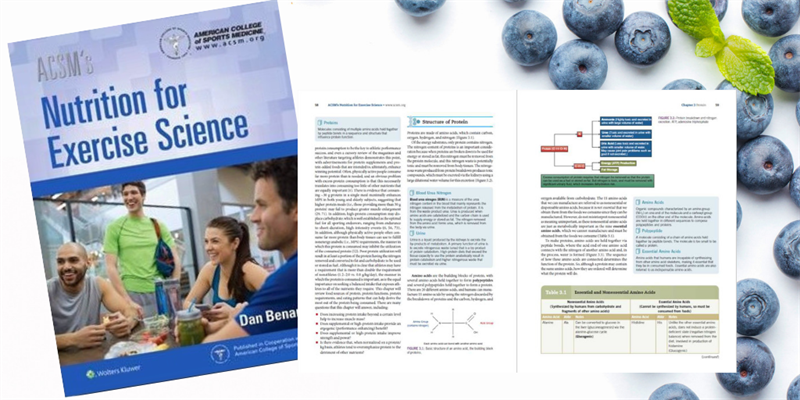Ten Things You Need to Know About Sports Nutrition
Dan Benardot, PhD, DHC, RD, LD, FACSM |
Dec.
4, 2018
- Look Beyond Weight When Determining Health It’s not your weight that matters, it’s what constitutes your weight. Find a way to learn if you have too little muscle or too much fat and find a strategy (exercise and eating well) that increases muscle and lowers fat. The number on the scale might stay the same, but you will look better, perform better and will be healthier.
- Building Muscle Takes More Than Just Protein Building muscle requires a combination of:
- Added resistance to muscles
- Staying in a good energy balanced state to encourage anabolic hormone production
- Having a good distribution of nutrients to sustain tissue health
- Adequate sleep
- Consuming more protein in the right amounts and at the right times to encourage muscle protein synthesis
- Protein: It’s Not Just More, But When and How Much If you are an athlete, you need about double the protein as nonathletes, but just eating more protein isn’t enough. It must be consumed in the right amounts, at the right times and when in a reasonably good energy balanced state. Randomly eating more protein doesn’t accomplish what the body needs.
- Infrequent Meals Cause Problems Meal skipping, or eating in a pattern that fails to satisfy energy requirements in real time, creates many problems including higher body fat levels, lower lean mass and greater cardiometabolic risk factors. Interestingly, more frequent eating is associated with lower total caloric intake because of better ghrelin (appetite hormone) control.
- Eating Good Foods Helps the Microbiome Keep You Healthy Inadequate intake of fresh fruits and vegetables may alter the microbiome, resulting in higher body fat percentage and reduced athletic performance. Consuming plenty of fresh fruits and vegetables helps to sustain good bacterial colonies that live in the gut. Additional benefit: Fruits and vegetables give you the carbs you may lack for maximal performance.
- Good Food, Bad Food, Wrong Choice There is no perfect food, and if you keep eating the same food(s) because you believe it’s good for you, you place yourself at nutritional risk. There is no substitute for eating a wide variety of foods that are well-distributed throughout the day. You don’t get too much of anything potentially bad, and you expose tissues to all the nutrients they need.
- Relative Energy Deficiency in Sport (RED-S) can be a Problem The best exercise performance occurs when you have enough energy to support the exercise. If you frequently post-load by consuming the energy (calories) after the workout/competition, be aware of the potential health and performance consequences. You can’t drive your car on an empty tank of gas, and neither can you perform well if your tank is empty.
- Poor Hydration, Poor Performance Sustaining the best possible fluid balance is important for many reasons, including sustaining heart stroke volume, sustaining sweat rates, enabling delivery of nutrients to working cells and enhancing removal of metabolic waste products from cells.
- Recovery from Exercise is Just as Important as the Exercise Putting stress on muscles through exercise isn’t enough to reap the full health benefits. You must give muscles an opportunity to recover from the stress so that they can benefit from the exercise. Adequate sleep is important by helping to sustain appropriate eating behaviors and muscle recovery.
- It Is Important to Learn How to Lower Stress Stress levels impact eating behavior. High stress levels can lead to the consumption of energy-dense foods that are high in fat and sugar. Find a strategy for stress-reduction that can help you sustain optimal nutrition, which will positively influence both performance and health.
Dan Benardot, PhD, DHC, RD, LD, FACSM is Professor Emeritus at Georgia State University, and Visiting Professor in the Center for the Study of Human Health at Emory University. He is the author of the new title ACSM’s Nutrition for Exercise Science. For more information about the book and to download an excerpt, visit https://www.acsm.org/read-research/books/acsms-nutrition-exercise-science.
